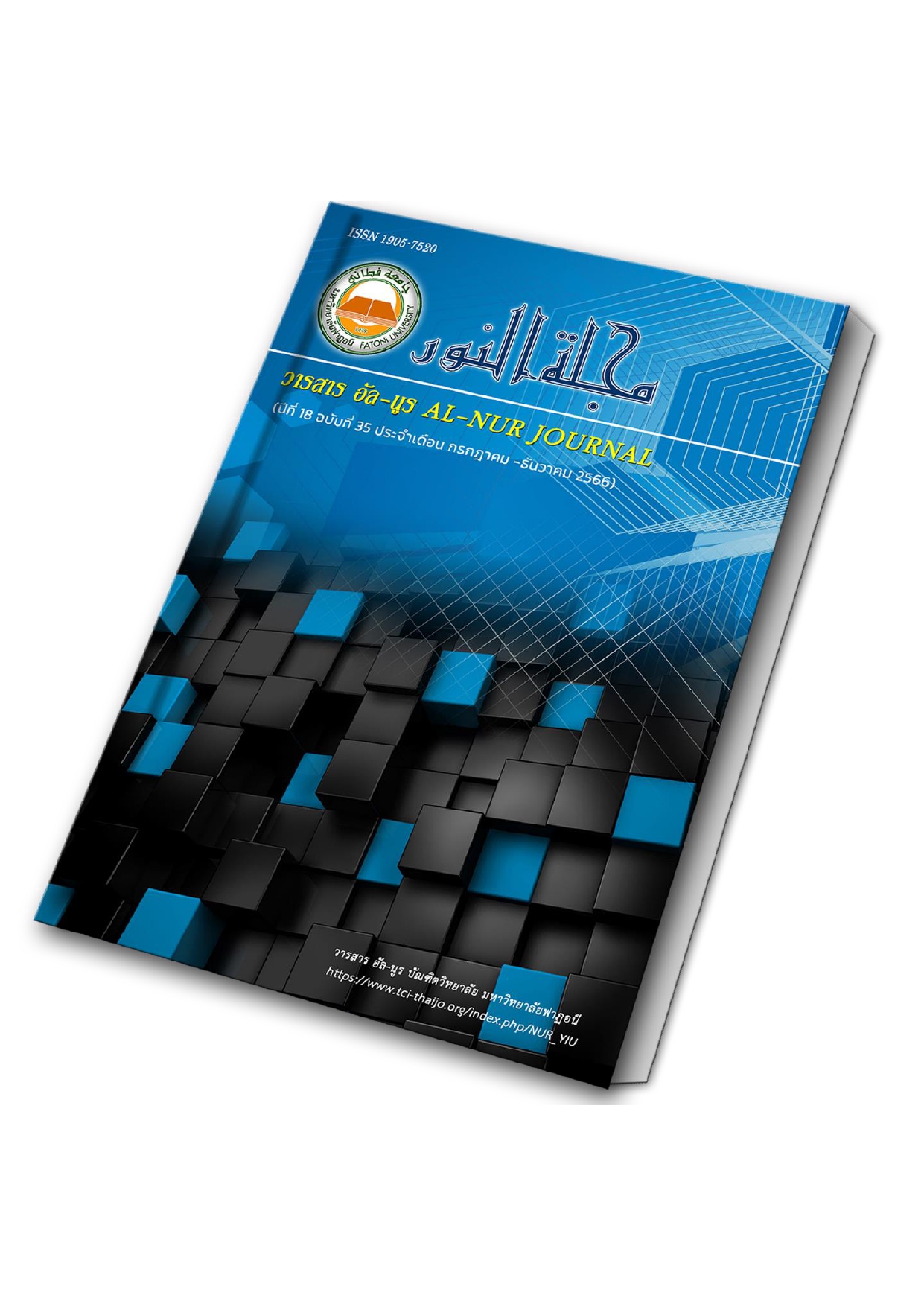Fostering 21st-Century Skills through Project-Based Learning: Learners’ Perspectives from a Thai-English Translation Course
Keywords:
Project-based Learning (PBL), 21st-century skill development, Attitude, PerceptionAbstract
This research aimed at investigating learners’ attitudes toward project-based learning in a Thai-to-English translation course; and exploring how the students perceived their 21st-century skill development through project-based learning. The data were obtained from 85 Thai EFL English-major undergraduates, enrolling in the Thai-to-English Course for the academic year 2022, through a questionnaire on attitudes toward project-based learning and perceptions of developing 21st-century skills through project-based learning, and a self-reflection. The quantitative data from the questionnaire were analyzed using means and standard deviation, while the qualitative data from the reflection was conducted through content analysis to draw themes. The research findings highlight that the participants hold positive attitudes toward project-based learning (PBL). The research findings indicate that the participants held positive attitudes toward project-based learning (PBL). They perceived PBL as an effective pedagogical approach that enhanced their 21st-century skills, including critical thinking, creativity, information literacy, and communication. The study provides insights into how PBL fosters these skills, aligning with the evolving educational needs of students in the 21st century.
References
References
Alkhatnai, M. (2017). Teaching translation using project-based learning: Saudi translation students' perspectives. AWEJ for Translation & Literary Studies Volume, 1.
Al-Sowaidi, B. (2021). Use of Project-based Training in Teaching Business Translation. European Journal of Education and Pedagogy, 2(4), 11–16.
Apandi, A., & Afiah, D. S. S. (2019). Project Based Learning in Translation CLASS. Academic Journal Perspective: Education, Language, and Literature, 7(2), 101-108.
Astuti, D., Syukri, S., Nurfaidah, S., & Atikah, D. (2021). EFL Students’ Perceptions of The Benefits of Project-Based Learning in Translation Class. International Journal of Transdisciplinary Knowledge, 2(1), 12-26.
Bell, S. (2010). Project-Based Learning for the 21st Century: Skills for the Future. The Clearing House: A Journal of Educational Strategies, Issues and Ideas, 83(2), 39-43. DOI: 10.1080/00098650903505415
Binkley, M., Erstad, O., Herman, J., Raizen, S., Ripley, M., & Rumble, M. (2010). Draft white paper 1: Defining 21st century skills. Available at http://cms.education.gov.il/NR/rdonlyres/19B97225-84B1-4259-B423-4698E1E8171A/115804/defining21stcenturyskills.pdf
Binkley, M., Erstad, O., Hermna, J., Raizen, S., Ripley, M., Miller-Ricci, M., & Rumble, M. (2012). Defining twenty-first century skills. In P. Griffin, E. Care, & B. McGaw (Eds.), Assessment and teaching of 21st century skills (pp. 17–66). Dordrecht, Netherlands: Springer Science+Business Media B.V.
Condliffe, B. (2017). Project-Based Learning: A Literature Review. Working Paper. MDRC. Available at: https://eric.ed.gov/contentdelivery/servlet/ERICServlet?accno=ED578933
Deng, L. (2018). The project-based flipped learning model in Business English Translation course: Learning, teaching and assessment. English Language Teaching, 11(9), 118-128.
Hilmi, L., & Safitri, D. (2022). Project-based Learning in Translation Courses: An Implementation and Students’ Perception. Journal of English Language Teaching, 11(2), 175-186.
Kokotsaki, D., Menzies, V., & Wiggins, A. (2016). Project-based learning: A review of the literature. Improving Schools, 19(3), 267-277.
Li, D., Zhang, C., & He, Y. (2015). Project-based learning in teaching translation: students’ perceptions. The Interpreter and Translator Trainer, 9(1), 1-19.
Moghaddas, M., & Khoshsaligheh, M. (2019). Implementing project-based learning in a Persian translation class: a mixed-methods study. The Interpreter and Translator Trainer, 13(2), 190-209.
Pimentel, J. L. (2010). A note on the usage of Likert Scaling for research data analysis. USM R&D Journal, 18(2), 109-112.
Poonpon, K. (2017). Enhancing English skills through project-based learning. The English Teacher, 10.
Quint, J., & Condliffe, B. (2018). Project-Based Learning: A Promising Approach to Improving Student Outcomes. Issue Focus. MDRC. Available at https://eric.ed.gov/contentdelivery/servlet/ERICServlet?accno=ED580907
Ralph, R. A. (2016). Post secondary project-based learning in science, technology, engineering and mathematics. Journal of Technology and Science Education, 6(1), 26-35.
Shin, M.-H. (2018). Effects of Project-Based Learning on Students’ Motivation and Self-Efficacy. English Teaching, 73, 95-112.
Stoller, F. (2006). Establishing a Theoretical Foundation for Project-Based Learning in Second and Foreign Language Contexts. In G. H. Beckett, & P. C. Miller, Eds., Project-Based Second and Foreign Language Education: Past, Present, and Future (pp. 19-40). Greenwich, CT: Information Age.
Sulaiman, N. D., & Shahrill, M. (2015). Engaging collaborative learning to develop students’ skills of the 21st century. Mediterranean Journal of Social Sciences, 6(4), 544.
Trilling, B., & Fadel, C. (2009). 21st century learning skills. Wiley, San Francisco.
Downloads
Published
Issue
Section
License
Copyright (c) 2023 WILAIWAN KA-J; Rosidat Samae, Fahad Tanweer

This work is licensed under a Creative Commons Attribution-NonCommercial-NoDerivatives 4.0 International License.
Proposed Creative Commons Copyright Notices


